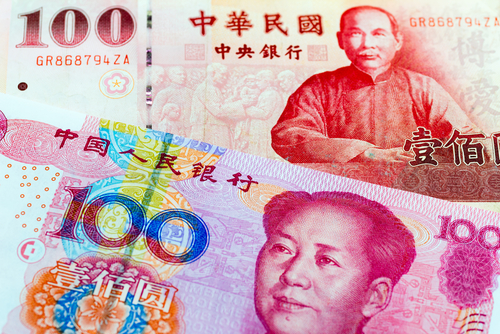The Chinese Communist Party’s new proposals for imposing personal income taxes could put Taiwanese citizens working or living in mainland China at a disadvantage.
In late August, the Standing Committee of the Party’s rubber-stamp legislature, the National People’s Congress, convened to discuss proposals for reforms to personal income tax laws.
Taiwan has its own constitution, democratically elected government, and military. However, Beijing regards Taiwan as one of its own provinces that will be reunited with the mainland one day—by military force, if necessary.
Thus, there are some unique regulations and policies pertaining to cross-strait relations.
The draft legislation stipulates that those who have lived in mainland China for more than 183 days in a given tax year will be considered tax-paying residents. Thus, their personal income—whether obtained within China’s borders or not—will be subject to taxation in mainland China.
According to Li Renxiang, CEO of Hamber Consulting Service in Taiwan, this draft differs from China’s current tax scheme, whereby anyone who has not lived in China consecutively for 30 days within a year, or has not lived in China for more than 90 days total, would not be considered a tax-paying resident.
Li said that under the new scheme, all of the personal income earned outside of China would be subject to taxation in China.
The 183-day rule for being considered a resident in the tax code is an international standard, Li said.
However, according to the “Act Governing Relations between the People of the Taiwan Area and the Mainland Area,” Taiwanese citizens who make money in mainland China must report that income in Taiwan and be subject to taxes.
So if the new proposals get approved in Beijing, Taiwanese could end up paying taxes twice on their income.
Li explained that most countries have tax-levying agreements that ensure an individual only pays taxes once. The United States and China, for example, have an agreement whereby the two countries’ taxation services decide which country an individual should pay taxes in.
The tax-levying agreement between Beijing and Taiwan was signed in 2015 but is stuck in Taiwan’s legislature awaiting approval.
Security
Another concern for Taiwanese working in China is Beijing’s latest residency permit cards. Taiwan’s director of the Department of Cybersecurity, Jian Hong-wei, warned that the cards will pose privacy and national security risks to Taiwanese, according to an Aug. 20 report by Taipei Times, an English language newspaper based on the island.
The cards, which will be available beginning in September to certain individuals from Taiwan, Hong Kong, and Macau who work in mainland China, contain the cardholder’s name, fingerprints, photograph, date of birth, address, and an 18-digit serial number—an ID system that mainland Chinese nationals are under.
People from Taiwan, Hong Kong, and Macau may apply for the residency permit if they are employed in a stable job position, have lived in China for at least half a year, have a permanent place of residence in China, and satisfy at least one requirement for continuing education, according to Chinese authorities.
But the information on the cards has alarmed Taiwan authorities. “Fingerprints are private biometric data and there is no end to the ways Chinese authorities could use them once they get hold of them,” Jian said, noting that the Chinese authorities could store the information and potentially take advantage of it for human rights violations.
From The Epoch Times


